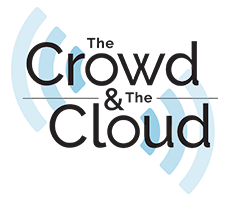
Newsletter
Sign up and stay in-the-know about The Crowd & The Cloud and the world of citizen science.

In Episode 1, The Crowd & The Cloud visits Nepal and discovers the real-world impact of citizen-created maps. Scroll down to learn more about the people and projects featured in this segment.

To map the entire world remotely and in situ.
OpenStreetMap is a free, open-source, editable map of the whole world. It is built largely from scratch by volunteers who trace features, such as roads and buildings, over the top of satellite imagery. The current and updated map that gets created can then be used by anyone for any purpose and has been used for community planning, as well as to aid in humanitarian efforts across the globe. This type of citizen science is called “volunteered geographic information,” and it’s where you add data to a map using your computer or smartphone.
What’s really great about OpenStreetMap is you can map your own community or some other place anywhere on Earth that you choose! In an exclusive interview, Nama Budhathoki explains the power of OpenStreetMap. You’re the best person to map your community because you can verify that it’s correct information, so that if you see that a road or building is labelled wrongly on the map you can simply change it yourself. OpenStreetMap also hosts humanitarian projects that you can take part in if you want to donate your time to helping people that have been struck by a natural disaster. For example, when earthquakes struck Haiti in 2010 and Nepal in 2015, the Red Cross and other aid organizations, used OpenStreetMap maps created by people just like you to help deliver aid to those in need.
You don’t have to be a professional geographer to contribute, anybody can learn to use OpenStreetMap. There are many ways to upload data to the maps, not just tracing over satellite imagery. If you’re a cyclist or hiker, you can use a GPS to upload your path to the map. The more people contribute data to the maps, the more accurate and useful they become. It creates a large community too, where participants can get together for what are called ‘mapathons’ to map for a cause. Mapathons have even been held at the White House! All you need is a smartphone or computer and the desire to be part of something big by mapping your community and other communities that need your help.
When major disaster strikes anywhere in the world, HOT rallies a huge network of volunteers to create, online, the maps that enable responders to reach those in need.
From small house fires to multi-state natural disasters, the American Red Cross goes wherever needed, so people can have clean water, safe shelter and hot meals.
A global partnership that helps developing countries better understand and reduce their vulnerability to natural hazards and climate change.
Mapbox is a mapping platform for developers, at which Mikel Maron, seen in C&C Episode 1 now works. Building blocks make it easy to integrate location into any mobile or online application.
Planet is designing, building and launching satellites faster than any company or government in history.
